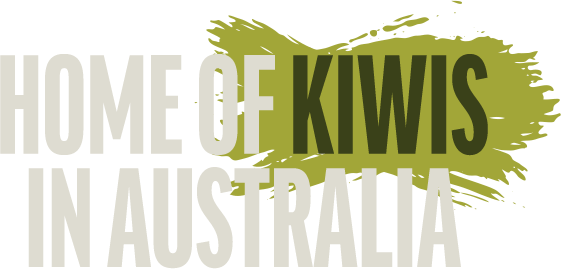
Early Learning & Child Care in Australia
Child Care, when you need to leave your child in someone else’s care, might be needed if you have work, study or other commitments. Choosing the right child care or early learning centre can be a tricky decision for some families and will depend on your own family’s needs, the centre location and the environment with which you and your child will feel most comfortable.
As well as providing care, child care and early learning services also provide an opportunity for your child to develop social, emotional and learning skills before they are old enough to attend school.
New Zealand citizens living in Australia may be eligible for the Centrelink Child Care Subsidy.
People who viewed this page also viewed Australian School Years for NZ Children
Types Of Child Care Services & Early Learning in Australia
Following is a quick description of the different types of child care and early learning services available in Australia:
Centre Based Day Care
Centre Based Day Care is usually available for all day or part of the day at a centre. Some centres offer morning or afternoon sessions. Many centres offer meals throughout the day including morning tea, lunch and afternoon tea. If a centre doesn’t provide meals then families need to provide their own. Most Centre Based Day Care centres will have an early education component to their programme so children will learn in the time they are there. Centre Based Day Care centres are run by private companies, local councils, community organisations, individuals or non-profit organisations. The majority of Centre Based Day Care centres are approved child care services but you should check with your local authority or Centrelink first if you plan to claim the Child Care Subsidy.
Family Day Care
Family Day Care services deliver flexible home-based education and care for children. They can provide flexible care, including all-day care, part-time, casual, overnight, before and after school care, and care during school holidays. Family Day Care services must meet their obligations under the National Quality Framework for Early Childhood Education and Care and comply with the Early Childhood Services Education and Care National Law and National Regulations, and any other applicable state and territory regulations, when providing care to children. They may provide care in their home for the maximum number of children, including their own children, in accordance with the National Law and National Regulations. The majority of Family Day Care Services are approved child care services but you should check with your local authority or Centrelink to be sure if you plan to claim the Child Care Benefit.
In Home Care
Like Family Day Care, In Home Care offers in home care but in your own home rather than theirs. In Home Care is suitable for families with children who cannot be cared for by other child care services or whose circumstances mean that an existing child care service cannot meet their needs. Such examples of this include if the child or another child they live with has an illness or disability or if the child’s guardian works during hours when no other approved child care service is available.
Outside School Hours Care
Sometimes called Before/After School Care, Outside School Hours Care centres provide care for primary school aged children, before and after school (7:30 am -9:00 am and 3:00 pm -6:00 pm), during school holidays and on pupil-free days. Vacation Care is a type of Outside School Hours Care that includes indoor and outdoor activities. These centres are sometimes run by the same organisation that runs before and after-school care. Centres are usually located on primary school sites in the school hall and/or playground. Some centres are located in a child care centre, community facility or outside-school hours care centre near the primary school. The majority of Outside School Hours Care centres are approved child care services but you should check with your local authority or Centrelink to be sure if you plan to claim the Child Care Benefit.
In Home Care
In Home Care is a versatile type of early childhood education where an educator provides care directly in the child’s home. This service is specifically designed for families who are unable to access other early childhood education options.
Child Care Waiting Lists
There are often situations where there are no places or vacancies at a child care centre you wish to use. Some centres have waiting lists to help determine the next placement should a spot become available. Where demand for child care is high, all approved services with the exception of Occasional Care must adhere to Priority of Access Guidelines to ensure a fair child care system. The system ensures that places are allocated to families with the greatest need for child care. These guidelines only apply to Child Care Subsidy approved child care services with the exception of Occasional Care.
What is the Child Care Subsidy?
The Child Care Subsidy (CCS) is the primary means by which the Australian Government assists families with child care expenses. Typically, CCS is paid to child care providers, who then pass the subsidy on to families as a fee reduction. To receive CCS on behalf of families, providers must be approved by the relevant department.
The Child Care Subsidy is income tested. You can apply for the Child Care Subsidy online or in person through Centrelink. To apply online, visit the Department of Human Services website.
To be eligible for Child Care Subsidy:
- you or your partner must meet the residency requirements
- you must use approved or registered child care
- your child must be immunised, on an immunisation catch up schedule or be exempt from the immunisation requirements
- you must be the person who is responsible for paying the child care fees for your child
Factors that car affect the amount of Child Care Subsidy you receive include:
- your income
- the type of care you use (approved or registered)
- the amount of care you use
- the reason you are using care
- the number of children you have in care
Factors that can affect your ability to continue to claim Child Care Subsidy include:
- your child starting school
- one of your children no longer using care
- changes in your household income
- you or your partner no longer meeting the Work, Training, Study test
- participation in work, training or study related commitments
- if you enter into a salary sacrifice arrangement with your employer in which some or all of your child care fees are paid for you
Resources & Information
The Australian Government has information on the myGov website where you can find more information on this subject and others relating to children and children’s services.
To find an approved childcare provider near you, you can use the tool on the Starting Blocks Website.
This page was updated on 6th June 2024
Moving to Australia
- Banking Options
- Childcare & Early Learning
- Community Services
- Credit Checks
- Driver Licence
- Financial Support
- Getting Connected
- Giving Birth
- Healthcare in Australia
- Insurance
- Legal System
- Marriage Relationships
- Pension Eligibility
- Police Check
- Renting Advice
- Responsible Service of Alcohol
- School Years
- Tax in Australia
- What to Bring
- Working With Children Check





